Public Television's War of 1812 Special Disrespects U.S. Military
By James Hufnagel
It is often said that history is written by the victors. However, when the victors are so wracked by guilt and beholden to political correctness that they feel the need to write a dishonest version of that history, one might legitimately ask the question was it worth it?
Marking the 200th anniversary of a conflict that shaped the destiny of North America, Buffalo's WNED-TV recently aired "The War of 1812."
The documentary was partly underwritten by PBS, the Annenberg Foundation and Arthur Vining Davis. The Niagara Falls Bridge Commission also chipped in to fund production. At its website, the Bridge Commission informs us that it is "self-supportive, largely through user fees (tolls)." Remember that the next time you fork over the $3.25 toll on the bridge so that the "self-supportive" Commission can bankroll television shows.
For years now, WNED's logo has featured the U. S. and Canadian flags and "Buffalo/Toronto," a strategy most would consider advantageous from a regional marketing standpoint. Major donors to "The War of 1812" include Warren and Barbara Goldring, Phil Lind, The Wilson Foundation and the Jackman Foundation, Canadian philanthropic entities for whom, as we will see, WNED and its filmmakers were eager to please at the expense of patriotism and love of our own country.
Nobody reads history books anymore so the recounting of history on TV must, of course, be tailored to suit the collective tastes and attention span of modern viewers. The PBS style is therefore not dates and places, overachieving white guys and other boring stuff, but more fashionably the "real people" who "experienced" history and who speak to us through talking-head historians and period actors.
The entire two-hour documentary bends over backwards to disrespect the American military and belittle the United States of America. American leaders are repeatedly portrayed as buffoons, cowards, and drug addicts while all others involved in the conflict are noble and heroic-while everyone else from women to minorities to Canadians were godly and brave.
It is an outrage for which those responsible should be held to account.
The following photos are of some of the principle figures in the war of 1812 and what the dishonest PBS documentary had to say about each.
American (evil) Henry Clay
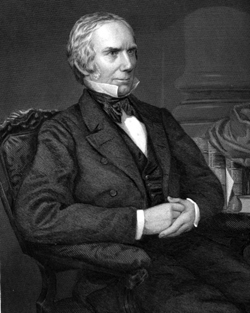
We are told the conflict was the result of "a new breed... elected to Congress. Men like Henry Clay of Kentucky and John C. Calhoun of South Carolina. War for them was the only answer."
American (angry) William Henry Harrison
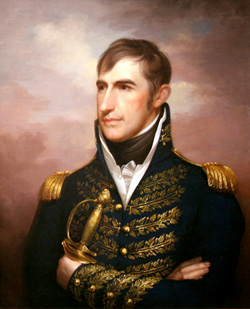
“Among the principle architects... was a learned, long-faced, hot-tempered man named William Henry Harrison." Harrison was a general of the war and future U. S. President.
Native (Brave, good)
Tecumseh
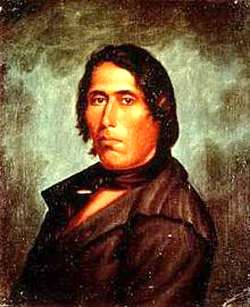
Harrison's antagonist early on was Chief Tecumseh, "a fierce warrior, yet it was his compassion that marked him. He refused to make war on women and children. Tecumseh (was) the great Shawnee leader. Tecumseh was way ahead of his time... He had a sense of honor. He was a humane, compassionate man. He was a man who didn't believe in gratuitous violence. He didn't believe in slaughtering people out of any sense of triumph..."
American (weak) Madison
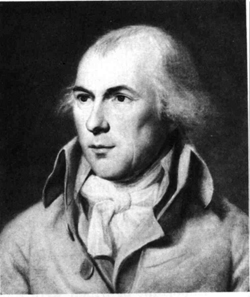
Another president who falls short in the show's judgment: "As an executive, (President James Madison) foundered.... very small. He could look, one observer said, 'like a withered little applejohn'. His enemies called him a pygmy, acknowledged that he was very smart but he probably wasn't cut out to be (president). He lacked a certain decisiveness. He lacked an instinct for the jugular."
Woman (superb) Dolly Madison
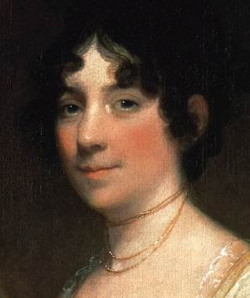
While it is fine to insult and condemn American men and the American military it would be politially incorrect to insult American women. So while all American militsary men and leaders were weak evil men, their women were sterling.
"Where Madison was an introvert, his wife Dolly was quite the opposite. She was 17 years younger, a fashion plate, politically astute yet blazingly social. Madison himself was more at home among his books than in human company." Obviously, compared to Dolly and Tecumseh, Presidents Madison and Harrison were walking pieces of crap.
"The first chapters of the war were a story of American disaster, one blunder after another."
Canadian (the godly) Sir George Provost
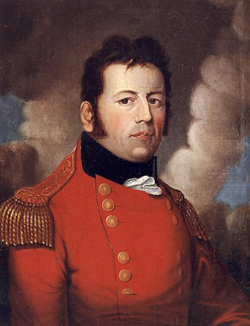
In sucking up to their rich Canadian patrons, WNED doesn't hold back when it comes to the portrayal of their war-makers, spreading it on with a trowel: "The fate of the Canadian colonies rested in the hands of Governor-General Sir George Prevost, a sensible, practical administrator."
Canadian (Saint) General Brock
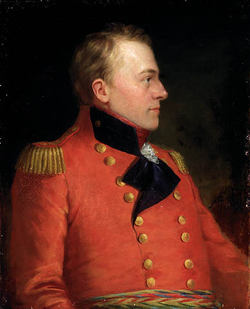
Prevost had an asset in the brilliant General Isaac Brock, Commander in upper Canada... He was 42, strikingly handsome, a wine lover and a gourmet. A dazzling dancer, an omnivorous reader. An aggressive, willful gambler. An aristocrat to his bones. He was extremely energetic. He was extremely ambitious."
American (drunkard) William Hull
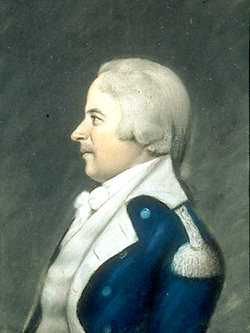
Pitted against these Supermen was American General William Hull, who "had been a brave soldier in the revolution, (but) he was 58. He had eaten and drunk a great deal too well for 30 years and when the war was looming... he went off with many misgivings and no possibility of success."
Woman (brave) Lydia Bacon - on cowardly American military:
As Tecumseh and the British lay siege to Detroit, an actress quotes Lydia Bacon, wife of an American Army officer who, with the rest of the timid army, "sat safely behind walls 11 feet high...my feelings were wrought up to a high pitch, but weep I could not. Complain I would not." William Hull, the narrator then tells us, "did not have Lydia Bacon's courage. The American general disintegrated. In the fort, there was Hull slumped on the ground, drinking heavily, smoking tobacco, juice and spittle running down the front of his uniform."
Meanwhile, American General Stephen Van Rensselaer is leading U.S .troops at Lewiston against the sainted Brock. Lest we forget, Brock "was one of those rare individuals who had a tremendous amount of charisma. A tremendous amount of organizational talent." One of Van Rensselaer's hapless militia had the unbelievable luck and the unmitigated gall to put a musket ball squarely in Brock's chest, killing him. "Isaac Brock... was now gone. This is a tremendous blow to upper Canada. It's a tremendous blow to the British military."
There was a third American army heading for Montreal. This one was commanded by a general named Henry Dearborn. Some of the young American officers coined the phrase 'Granny Dearborn' because he was like their old granny. Aging. Sickly. He needed his hot water bottle at night for his rheumatism. He was slow to move, conservative in his ideas."
American (corrupt, coward) General James Wilkinson:
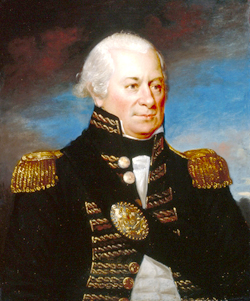
"A somewhat strange, corrupt revolutionary war veteran."
General Wilkinson "began dousing himself with laudanum to fight off dysentery. Wilkinson appears... to have miscalculated his dosage and from time to time he was wont to break into song and tell funny stories about previous experiences when he should maybe have kept his nose to the grindstone. 'In case of misfortune,' he decided, 'the army must surrender.' When his forces met up with the British at Cryslers farm, Wilkinson stayed behind... he doesn't even show up to conduct the battle himself...
Wilkinson simply withdraws and abandons the entire attempt... he just doesn't have the stomach to continue."
American (jealous) General Wade Hampton:
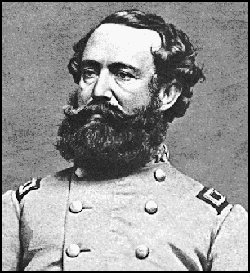
“A Carolina planter (of) whom it could be said his most salient feature was that he loathed Wilkinson."
Canadian (brave) woman Laura Secord.
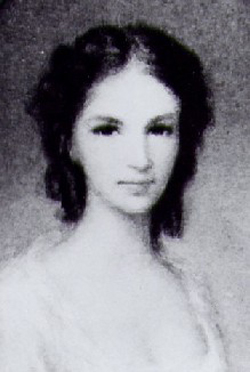
"Laura Secord was another ordinary Canadian who came to Britain's aid in the war of 1812. A 37-year-old housewife from Queenston, she became famous for struggling alone through 20 miles of wilderness to warn the British about an impending attack... Over time she became a legend. On the 100th anniversary of her journey, a Canadian chocolate company adopted her name and image as its logo. By 1992, she was put on a postage stamp as a true national hero." Diane Graves, an author and one of several Canadians in the programme, tells us "modern historians look at her representing the pioneer woman's experience. A lot of courage, a lot of fortitude was necessary for many pioneer women to survive in the Canadas (sic).
Washington, D.C .,in the opinion of WNED-TV's experts, was "really just dirt streets, mud, a few government buildings... a swampy, mosquito-infested malarial town of just 8,000 people full of tree stumps and refuse."
American (dunce) Jackson.
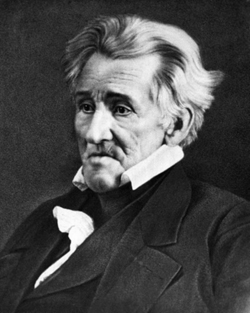
A third future president, Andrew Jackson, "Very rash. Orphaned early, ill-educated but filled with ambition... he harbored a great hatred for the British and he had a real capacity for hatred. He was not a reflective man."
Jackson won the Battle of New Orleans, which "would occupy an odd place in this war's history... the Canadians were not involved in the fighting, the British quickly forgot, but this battle or rather the legend of this battle is still remembered in the United States... over the years a story was told. A story of a heroic Tennessee general, of Kentucky riflemen sitting behind cotton bales. Of a slaughter that won a war."
And here is one of the final statements of what will become the standard account in classrooms across the nation utilizing this PBS program to educate students about the War of 1812: "In the end what lived on was a story about history. How its glories are enshrined in the heart of a nation. How its failures are forgotten. How its inconvenient truths are twisted to suit... (insert dramatic pause) or ignored forever."